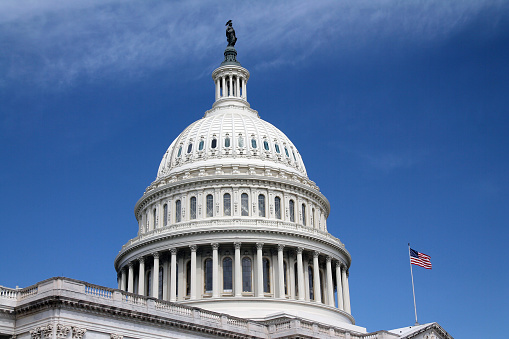House Republicans Unveil Draft Legislation For Stablecoin Issuer Regulation
While the regulation of the stablecoin and crypto market is still uncertain in the United States, Republicans on the House Financial Services Committee on Monday unveiled a legislation draft focused on the regulation of the issuers for these digital assets. Stablecoin issuers are entities that create and distribute digital assets with their value pegged to […]

While the regulation of the stablecoin and crypto market is still uncertain in the United States, Republicans on the House Financial Services Committee on Monday unveiled a legislation draft focused on the regulation of the issuers for these digital assets.
Stablecoin issuers are entities that create and distribute digital assets with their value pegged to the U.S. dollar. These can be private companies such as Circle, which issues USDC, financial institutions, or even individuals. Stablecoin issuers are responsible for ensuring that their stablecoins maintains a certain value relative to an underlying asset, such as a fiat currency or a commodity.
House Republicans Takes Lead In U.S Regulatory Landscape
Described as a “starting point” for conversations about stablecoin regulation with House Democrats, the Senate, and the White House in the coming months, the bill was crafted as a renewed effort to regulate stablecoins at a federal and state level.
The proposed bill requires stablecoin issuers to be regulated by a federal payment entity or a registered state-qualified payment issuer. Additionally, a stablecoin provider would need to meet certain reserve capital requirements and supply monthly disclosures of their reserve portfolios to be approved as an issuer.
Aside from these, the proposed bill still introduces several other factors addressing obligations that stablecoins issuers need to fulfill. This includes giving state regulatory agencies a more flexible approach toward handling certain requirements for approving stablecoin issuers.
This is only implied when the specific requirements reach the basic “floor” highlighted in the federal legislation. An instance is how it eases the prior narrative that required payment stablecoin issuers to respect all appeals to vindicate stablecoins for fiat within a day after the request was made.
The latest proposed bill presents a language that depicts issuers must “establish procedures for timely redemption of outstanding payment stablecoins.” It is worth noting the bill gives the state time to interrogate any infringement act that arises with stablecoin issuers approved by the states.
Furthermore, as stablecoins have been a subject of intense regulatory scrutiny, the bill also clarifies and updates US law to confirm that stablecoins are not securities, and by extension, should not be regulated by the Securities Exchange and Commission (SEC).
Potential Impact On The Crypto Market
Notably, If the proposed stablecoin regulation is ultimately passed into law, it could have a significant impact on the stablecoin and cryptocurrency market as a whole.
On the one hand, it could provide greater legitimacy and stability for stablecoins, which are currently largely unregulated. This, in turn, could increase confidence in the cryptocurrency market as a whole and lead to increased adoption of digital assets.
On the other hand, it could also increase regulatory compliance costs for stablecoin issuers, which could make it more difficult for new players to enter the market. It could also lead to increased fragmentation and a patchwork of regulations across different states, which could create additional compliance challenges for stablecoin issuers operating in multiple jurisdictions.
Regardless, as the cryptocurrency market continues to evolve, regulatory frameworks for stablecoins are becoming increasingly important. The new draft legislation released by House Republicans is a step towards establishing clearer guidelines for stablecoin issuers and increasing regulatory certainty in the market.
Meanwhile, the global crypto market has shown a bit of exposure to the different news circulating in the industry. Over the past 24 hours, the global crypto market capitalization has declined by 1.2%, at the time of writing with a value below $1.2 trillion.
Featured image from Unsplash, Chart from TradingView







